7 Best Supplements To Increase Testosterone Naturally
We include links to products we think are useful for our readers. If you click and buy a product through one of the affiliate links on this page, we may earn a small commission.
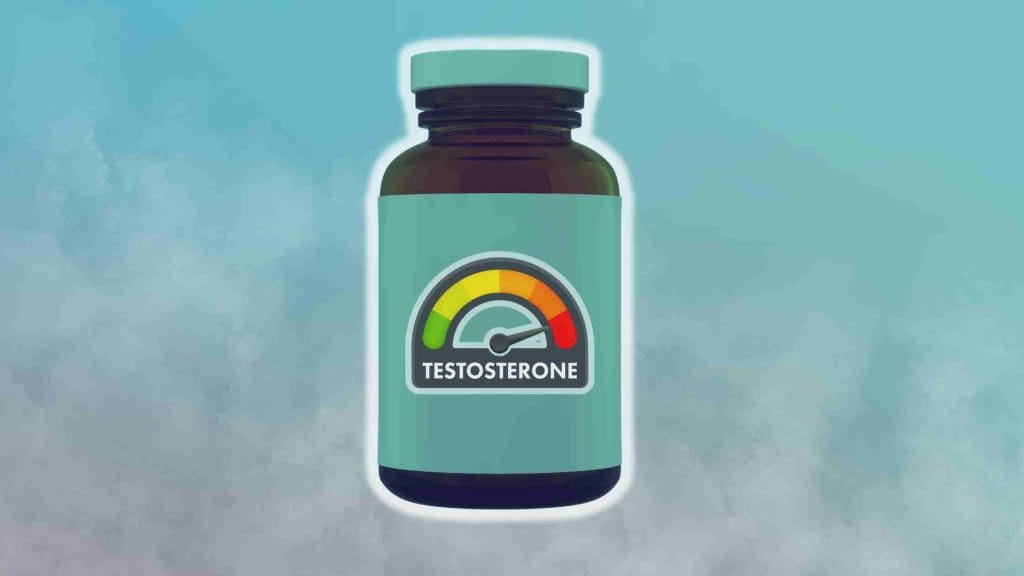
Best Natural Supplements for Testosterone
Low testosterone is an absolute drag, I’ve felt it. You don’t feel yourself, characterised by low motivation, low energy, lack of libido and difficulty maintaining muscle mass.
If you have been looking for ways to boost testosterone without injectables, there’s a whole bunch of natural testosterone boosting supplements, herbs, vitamins and practices that are safe and effective.
If you’re experiencing low testosterone, we’ve got you covered in this article as we break down the 7 best supplements to increase testosterone naturally.
Our Top Picks – Best Testosterone Boosting Supplements
Ashwaganda – Tribe Organics Ashwaganda
Tongkat Ali – Momentous Tongkat
Zinc – Bulletproof Zinc with Copper
Shilajit – Double Wood Supplements Shilajit
Fenugreek – Now Foods Fenugreek 500mg
Fadogia Agresdis – Momentous Fadogia
Vitamin D – Momentous Vitamin D3
How We Choose
When choosing a testosterone supplement, there are several important factors to consider to ensure safety, effectiveness, and overall health benefits. Here are the main things to keep in mind:
Test and Consult with a Healthcare Professional: Before starting any testosterone supplement, it’s essential to consult with a healthcare professional, preferably a doctor or endocrinologist. They can assess your specific health situation, conduct necessary tests to determine your testosterone levels, and provide personalized recommendations. It may also be helpful to do your own testing with an at home hormone testing kit.
Ingredients and Research: Look for products that contain well-researched and scientifically supported ingredients. Check if the supplement includes natural testosterone boosters, as well as any potential blockers for testosterone conversion. Ensure the ingredients are reputable and have undergone clinical studies to back their effectiveness.
Dosage: Choose a product that provides the ingredients in safe and recommended dosages. Avoid supplements that contain excessively high doses, as this may lead to adverse effects or interactions with other medications.
Quality and Regulation: Opt for supplements that have been third-party tested or clinically studied. Check for seals of approval from reputable organizations, such as the United States Pharmacopeial (USP) seal, or TGA approval for Australian products which ensures that the supplement contains the ingredients listed on the label in the declared potency and amounts.
Individual Health Considerations: Take into account your personal health history, existing medical conditions, and any medications you might be taking. Some supplements may interact with certain medications or exacerbate specific health conditions.
Side Effects and Risks: Research the potential side effects and risks associated with the supplement you’re considering. Be cautious of products that promise rapid or extreme results, as they may carry higher risks. Every supplement may present a risk so it is important to assess your individual level of health and assess whether a lifestyle change may be a better first step for you instead of adding in a supplement. Afterall, the best and sustained testosterone boosting will come from a strong set of wellness habit around nutrition, sleep and exercise.
Manufacturer Reputation: Choose supplements from reputable manufacturers with a track record of producing high-quality products. Look for customer reviews and feedback to gauge the overall satisfaction with the product. Don’t look for quick-fix products, any supplement should be used in conjunction with healthy lifestyle choices for best results.
Budget: Consider the cost of the supplement and whether it fits within your budget. Keep in mind that expensive doesn’t always mean better, so focus on the quality and ingredients instead.
The 7 Best Supplements to Increase Testosterone
In recent years, there has been growing interest in natural supplements as a means to support and enhance testosterone levels. Maintaining healthy testosterone levels is crucial for various aspects of men’s health, including muscle mass, bone density, mood, and sexual function.
While supplements cannot replace lifestyle factors like adequate sleep, a balanced diet, and regular exercise, some natural substances have shown promise in supporting testosterone production. In this analysis, we will explore the potential benefits of six natural supplements—Ashwagandha, Tongkat Ali, Shilajit, Fenugreek, Fadogia Agrestis, and Vitamin D—backed by scientific evidence.
1. Ashwagandha (Withania somnifera)
What It Is
Ashwagandha is an adaptogenic herb with a long history in traditional Ayurvedic medicine. It is known for its stress-reducing and immune-boosting properties.
How It Helps
Ashwagandha may influence testosterone levels indirectly by reducing stress. Chronic stress can elevate cortisol levels, which can suppress testosterone production. By promoting relaxation and reducing cortisol, Ashwagandha helps create a hormonal environment more conducive to maintaining healthy testosterone levels. This adaptogenic herb has been traditionally used to manage stress and improve overall vitality, making it a natural ally in supporting hormonal balance.
A study published in the Journal of the International Society of Sports Nutrition reported that Ashwagandha supplementation led to a significant increase in testosterone levels: “The treatment group that was supplemented with Ashwagandha had a significant increase in testosterone levels.” This study underscores the potential benefits of Ashwagandha in not only reducing stress but also in promoting hormonal health and supporting male reproductive health.
Additionally, Ashwagandha’s role in reducing oxidative stress and inflammation further supports its positive impact on testosterone levels. Oxidative stress and chronic inflammation can negatively affect various bodily functions, including hormone production. By mitigating these factors, Ashwagandha contributes to a more favorable internal environment for testosterone synthesis.
Incorporating Ashwagandha into a balanced lifestyle that includes proper nutrition, regular exercise, and adequate sleep can amplify its benefits. However, it’s essential to consult with a healthcare professional before starting any supplementation, especially if you have underlying health conditions or are taking other medications.
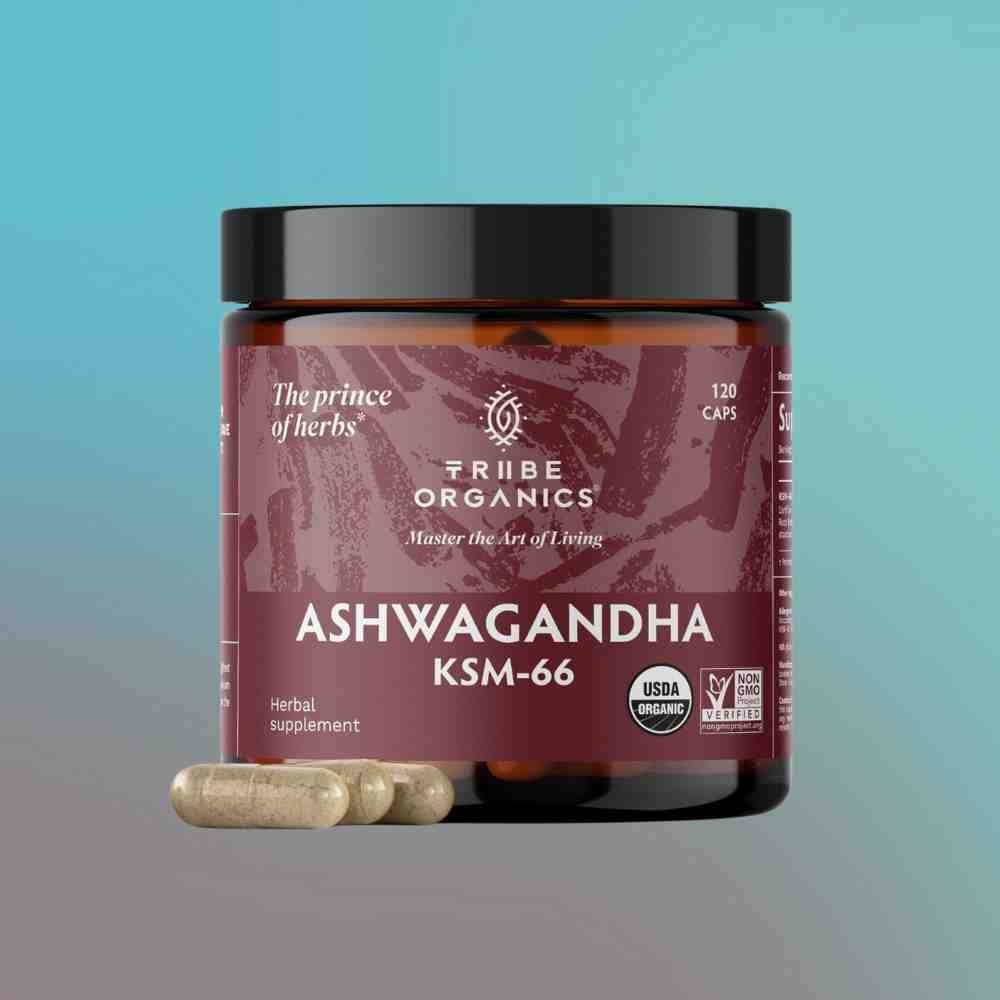
2. Tongkat Ali (Eurycoma longifolia)
What It Is
Tongkat Ali, also known as Longjack, is a Southeast Asian herb traditionally used as an aphrodisiac and adaptogen.
How It Helps T
Tongkat Ali has gained attention for its potential to support testosterone levels. This traditional herb, also known as Eurycoma longifolia Jack, has been used for centuries in Southeast Asian medicine for its aphrodisiac and vitality-boosting properties. Modern research has begun to validate these traditional uses, showing that Tongkat Ali can indeed play a role in hormonal health.
Research published in the Journal of the International Society of Sports Nutrition found that Tongkat Ali supplementation significantly increased testosterone levels: “Supplementation with Eurycoma longifolia Jack significantly increased total testosterone levels.” This study highlights Tongkat Ali’s efficacy in enhancing testosterone production, which can have a multitude of benefits for male health, including improved muscle mass, increased energy levels, and better sexual health.
The mechanisms behind Tongkat Ali’s effects on testosterone are thought to involve its ability to reduce stress and modulate hormonal balance. Similar to Ashwagandha, Tongkat Ali may help lower cortisol levels, a stress hormone that can negatively impact testosterone production. Additionally, it may influence the release of luteinizing hormone, which stimulates testosterone production in the testes.
Beyond its impact on testosterone, Tongkat Ali has also been studied for its potential benefits in improving mood, reducing fatigue, and enhancing overall well-being. These holistic benefits make it a valuable addition to a health regimen focused on maintaining hormonal balance and vitality.
As with any supplement, it is important to use Tongkat Ali responsibly and consult with a healthcare professional to ensure it is appropriate for your individual health needs. Combining Tongkat Ali with a balanced diet, regular exercise, and proper sleep can help maximize its benefits and support overall health and wellness.
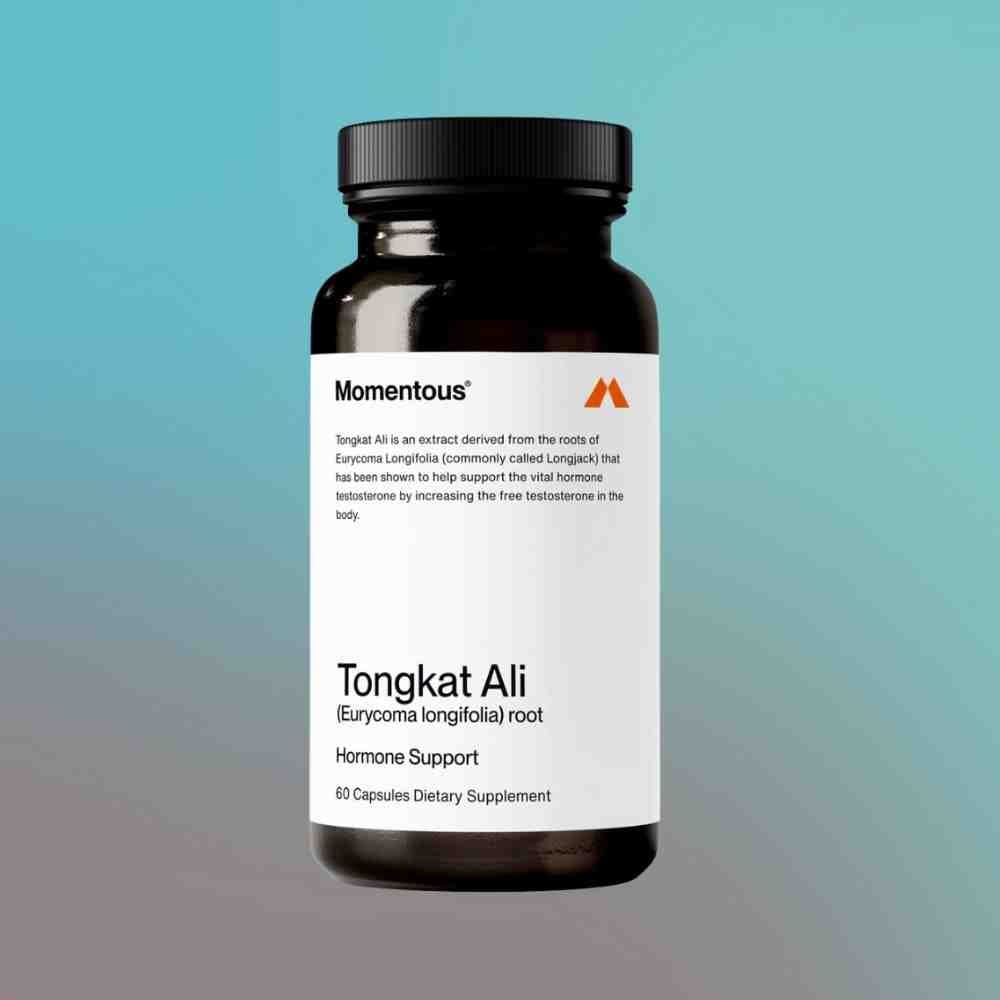
Servings: 60 caps
Price: $32USD single bottle or $27.20 on subscription
3. Zinc
What It Is
Zinc is an essential mineral that plays a crucial role in various bodily functions, including hormone production.
How It Helps
Zinc deficiency has been linked to lower testosterone levels. A study published in Nutrition reported that zinc supplementation increased testosterone levels in athletes: “Zinc supplementation significantly increased serum testosterone levels.”
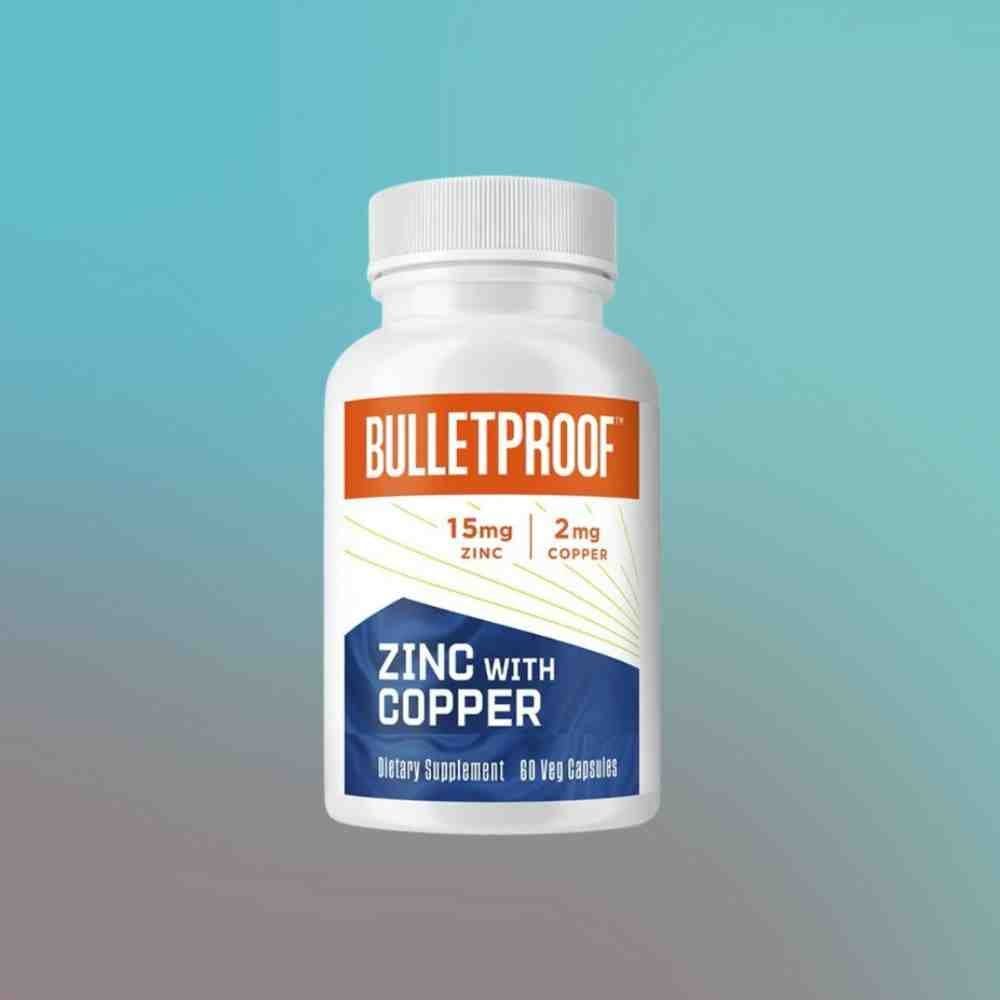
4. Shilajit
What It Is
Shilajit is a sticky substance formed in the Himalayas over centuries, composed of organic plant material and minerals.
How It Helps T
Shilajit has been studied for its potential to boost testosterone levels. A study published in Andrologia found that Shilajit supplementation led to significant improvements in testosterone levels and sperm count: “Shilajit treatment significantly increased total sperm count, sperm motility, and serum testosterone.”
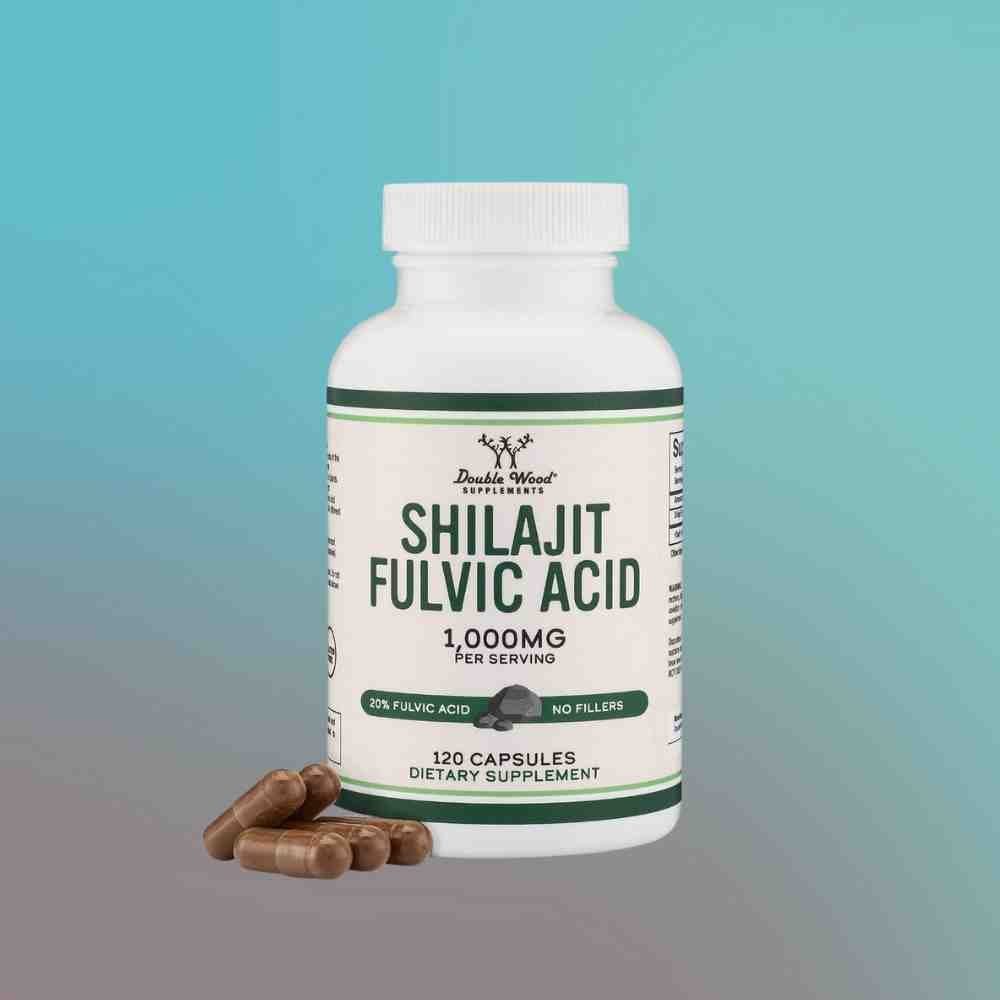
5. Fenugreek (Trigonella foenum-graecum)
What It Is
Fenugreek is an herb commonly used in cooking and traditional medicine. It contains compounds like furostanolic saponins, which have been linked to testosterone support.
How It Helps T
Fenugreek has shown promise in supporting testosterone levels. A study published in Phytotherapy Research reported that fenugreek supplementation significantly improved testosterone levels and other markers of male sexual function in healthy men: “The supplemented group showed a significant increase in testosterone levels.”
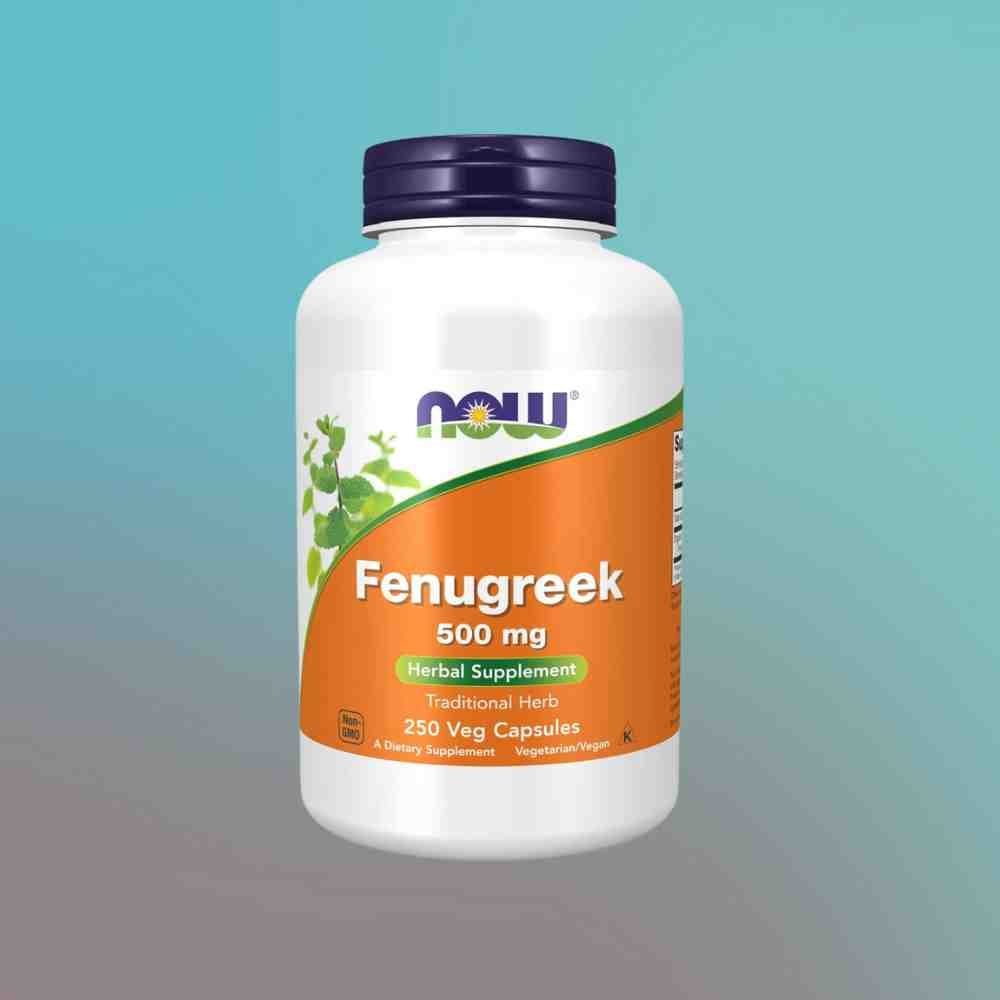
6. Fadogia Agrestis
What It Is
Fadogia Agrestis is an African herb traditionally used for its aphrodisiac properties.
How It Helps T
While research on Fadogia Agrestis is limited compared to some other supplements, some studies have suggested its potential to influence testosterone levels. A study published in the African Journal of Traditional, Complementary, and Alternative Medicines reported that Fadogia Agrestis extract led to a significant increase in serum testosterone levels in male rats: “Fadogia agrestis caused a significant increase in serum testosterone levels.”

Servings: 60 caps
Price: $41USD single bottle or $34.85 on subscription
7. Vitamin D
What It Is
Vitamin D is a fat-soluble vitamin that plays a vital role in various bodily functions, including hormone regulation.
How It Helps T
Vitamin D deficiency has been associated with lower testosterone levels. A study published in the Journal of Clinical Endocrinology & Metabolism found that vitamin D supplementation increased testosterone levels in men with low vitamin D: “Vitamin D supplementation increased testosterone levels.”
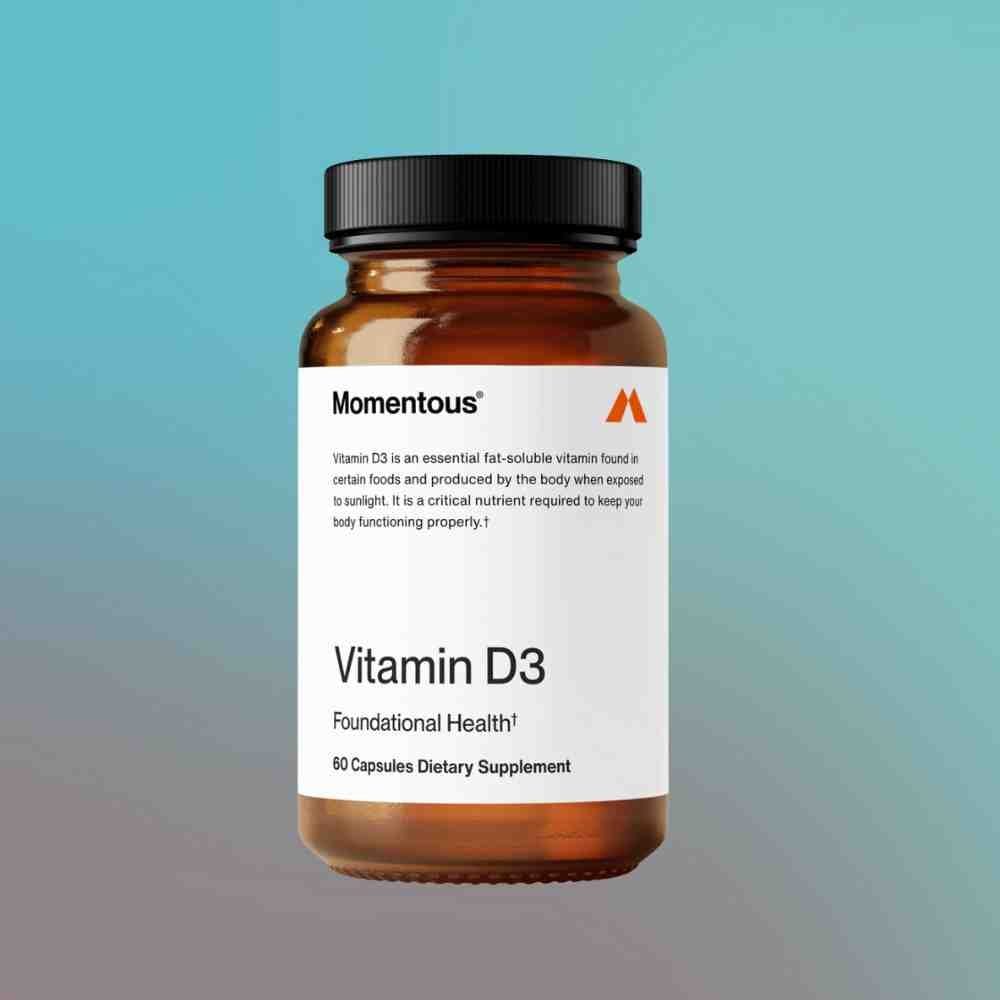
Servings: 60 caps
Price: $26USD single bottle or $22.10 on subscription
These natural supplements show promise in supporting and potentially boosting testosterone levels. However, it’s essential to approach supplementation with caution and consult with a healthcare professional, especially if you have underlying health conditions or are considering combining multiple supplements. Additionally, lifestyle factors such as maintaining a balanced diet, regular exercise, and adequate sleep remain fundamental in supporting overall health and hormonal balance.
Other Natural Ways to Boost Testosterone
Testosterone, the primary male sex hormone, plays a vital role in various aspects of health, including muscle mass, bone density, mood, and sexual function. Maintaining healthy testosterone levels is extremely important for everything from energy, to sex drive, to mental health.
While there are supplements to help naturally boost testosterone levels, there are far more important natural ways to effectively influence T levels.
1. Improving Sleep Quality
How It Affects Testosterone: Quality sleep is essential for hormonal balance, including testosterone production. During deep sleep, the body goes through various restorative processes, including the release of hormones like testosterone. Chronic sleep deprivation can lead to a decrease in testosterone levels.
A study published in the Journal of the American Medical Association (JAMA) in 2011 found that even a single week of sleep restriction (five hours per night) led to a significant decrease in testosterone levels in healthy young men.
Recommendations:
Aim for 7-9 hours of uninterrupted sleep per night.
Create a sleep-friendly environment by keeping the room dark, cool, and quiet.
Maintain a regular sleep schedule, going to bed and waking up at the same times each day.
2. Regular Exercise
How It Affects Testosterone: Exercise, especially resistance training and high-intensity interval training (HIIT), has been shown to boost testosterone levels. These forms of exercise stimulate muscle growth and increase the body’s demand for testosterone.
A study published in the Journal of Strength and Conditioning Research in 2012 found that resistance training significantly increased testosterone levels in both young and older men.
Recommendations:
Include a combination of resistance training (weightlifting) and cardiovascular exercise in your fitness routine.
Aim for at least 150 minutes of moderate-intensity aerobic exercise or 75 minutes of vigorous-intensity aerobic exercise per week.
3. Balanced Diet
How It Affects Testosterone: Proper nutrition is crucial for testosterone production. Some nutrients, such as zinc, vitamin D, and healthy fats, are essential for hormonal health. Deficiencies in these nutrients can lead to lower testosterone levels.
A study published in the Journal of Clinical Endocrinology and Metabolism in 2011 found that vitamin D supplementation increased testosterone levels in men with low levels of vitamin D.
Recommendations:
Consume a diet rich in whole foods, including lean proteins, fruits, vegetables, and whole grains.
Include foods high in zinc (e.g., lean meats, nuts, and seeds) and vitamin D (e.g., fatty fish, fortified dairy products).
Consider adding healthy fats like avocados, olive oil, and nuts to your diet.
4. Avoiding Alcohol and Excess Stimulants
How It Affects Testosterone: Excessive alcohol consumption can negatively impact testosterone levels. Alcohol disrupts the endocrine system and can lead to decreased testosterone production. Similarly, excessive caffeine intake can disrupt sleep patterns and indirectly affect testosterone.
A study published in the journal Alcohol and Alcoholism in 2014 demonstrated that heavy alcohol consumption was associated with decreased testosterone levels in men.
Recommendations:
If you choose to drink alcohol, do so in moderation. The recommended limit is up to one drink per day for women and up to two drinks per day for men.
Limit caffeine intake, especially in the hours leading up to bedtime to ensure quality sleep.
5. Avoiding Products Containing BPA’s (Bisphenol A)
How It Affects Testosterone: BPA is an endocrine-disrupting chemical found in some plastics and food packaging. Exposure to BPA has been linked to hormonal imbalances, including reduced testosterone levels.
Research published in the journal Fertility and Sterility in 2011 showed that BPA exposure was associated with lower testosterone levels in men.
Recommendations:
Choose BPA-free products, including food containers and water bottles.
Minimize the use of canned foods, as the lining of some cans may contain BPA. Opt for fresh or frozen options whenever possible.
While there are medical treatments available for individuals with low testosterone, adopting natural lifestyle changes, such as improving sleep, regular exercise, a balanced diet, limiting alcohol and caffeine intake, and avoiding products containing BPA, can contribute to optimizing testosterone levels. It’s important to note that individual responses may vary, and consulting with a healthcare provider is advisable, especially if you have concerns about your testosterone levels or underlying health conditions.
Frequently Asked Questions
The article lists supplements like Ashwagandha, Tongkat Ali, Zinc, Shilajit, Fenugreek, Fadogia Agrestis, and Vitamin D as natural testosterone boosters.
Ashwagandha may increase testosterone by reducing stress and cortisol levels.
Zinc is essential for hormone production, and its deficiency can lead to lower testosterone levels.
Yes, Vitamin D deficiency has been linked to lower testosterone levels, and supplementation can help increase them.
It’s important to consult with a healthcare professional before starting any supplement, especially for those with underlying health conditions.
Effectiveness can vary based on individual health conditions and lifestyle factors.
Excessive use of supplements can lead to adverse effects; it’s crucial to follow recommended dosages.
Symptoms may include fatigue, decreased libido, muscle weakness, and mood changes.
Regular medical check-ups and hormone testing kits can help monitor testosterone levels.
The Bottom Line
The bottom line on testosterone is that a strong set of healthy lifestyle habits will always reign supreme in the long run over taking a supplement, at least for now. That being said, there are no shortage of natural testosterone boosting supplements backed by some research to compliment lifestyle practices for improving testosterone and overall health.
While this article is by no means exhaustive, some of our favourites are Ashwaganda, Tongkat Ali, Zinc and Vitamin D, with others not as well known like Fedogia Agresdis, Fenugreek and Shilajit are all relatively safe and expert back supplements to try for a holistic approach to boosting testosterone levels.
References:
Ashwagandha (Withania somnifera)
Chandrasekhar, K., Kapoor, J., & Anishetty, S. (2012). A prospective, randomized double-blind, placebo-controlled study of safety and efficacy of a high-concentration full-spectrum extract of Ashwagandha root in reducing stress and anxiety in adults. Indian Journal of Psychological Medicine, 34(3), 255 to 262.
Tongkat Ali (Eurycoma longifolia)
Bhat R, Karim AA. (2010) Tongkat Ali (Eurycoma longifolia Jack): a review on its ethnobotany and pharmacological importance. Fitoterapia.
Tambi, M. I., Imran, M. K., & Henkel, R. R. (2012). Standardised water-soluble extract of Eurycoma longifolia, Tongkat Ali, as testosterone booster for managing men with late-onset hypogonadism? Andrologia, 44(S1), 226 to 230.
Shilajit
Biswas, T. K., Pandit, S., Mondal, S., Biswas, S. K., Jana, U., Ghosh, T., … & Auddy, B. (2010). Clinical evaluation of spermatogenic activity of processed Shilajit in oligospermia. Andrologia, 42(1), 48 to 56.
Fenugreek (Trigonella foenum-graecum)
4. Maheshwari A, et al (2017). Efficacy of FurosapTM, a novel Trigonella foenum-graecum seed extract, in Enhancing Testosterone Level and Improving Sperm Profile in Male Volunteers.
Steels, E., Rao, A., & Vitetta, L. (2011). Physiological aspects of male libido enhanced by standardized Trigonella foenum-graecum extract and mineral formulation. Phytotherapy Research, 25(9), 1294 to 1300.
Fadogia Agrestis
Yakubu, M. T., Akanji, M. A., & Oladiji, A. T. (2005). Aphrodisiac potentials of the aqueous extract of Fadogia agrestis (Schweinf. Ex Hiern) stem in male albino rats. Asian Journal of Andrology, 7(4), 399 to 404.
Vitamin D
Pilz, S., Frisch, S., Koertke, H., Kuhn, J., Dreier, J., Obermayer-Pietsch, B., … & Zittermann, A. (2011). Effect of vitamin D supplementation on testosterone levels in men. Hormone and Metabolic Research, 43(03), 223 to 225.
Chen C, Zhai H, Cheng J, Weng P, Chen Y, Li Q, Wang C, Xia F, Wang N, Lu Y. Causal Link Between Vitamin D and Total Testosterone in Men: A Mendelian Randomization Analysis. J Clin Endocrinol Metab. 2019 Aug 1;104(8):3148-3156. doi: 10.1210/jc.2018-01874. PMID: 30896763
BPA’s
Sonavane M, Gassman NR (2019). Bisphenol A co-exposure effects: a key factor in understanding BPA’s complex mechanism and health outcomes.
